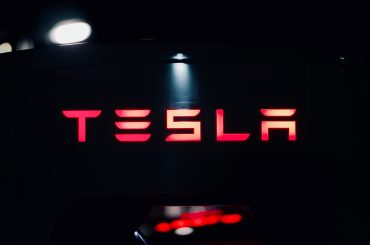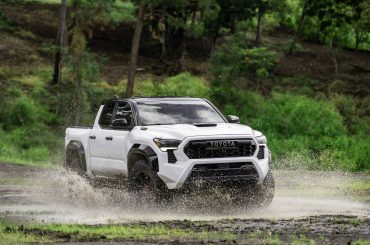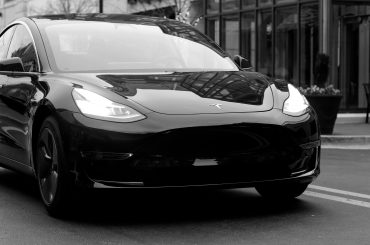Tesla has become a household name when it comes to electric cars. They have become electric vehicle pioneers and established themselves as a luxury car brand. Tesla has taken the automobile industry by storm with its innovative technology, futuristic design, and impressive range. But one question that often arises in the minds of potential Tesla owners is, does Tesla car need maintenance?
Contents
Background Research

Tesla cars have made a name for themselves by offering a unique driving experience. With its electric powertrain and advanced technology, Tesla cars require minimal maintenance. The brand’s electric vehicles offer a low-maintenance experience to car owners, which is quite different from traditional gasoline-powered cars. Tesla has designed its cars to be easy to maintain and reliable for a long time.
Does Tesla Car Need Maintenance?

Tesla owners can also book maintenance services through the Tesla app or website. Tesla service centers offer maintenance services such as brake fluid replacement, air conditioning service, and wheel alignment. Tesla owners can also purchase a Tesla maintenance plan, which includes regular maintenance checks, vehicle inspections, and replacement of worn-out parts.
Tesla cars require minimal maintenance compared to traditional gasoline-powered cars. However, there are still a few maintenance tasks that Tesla owners should regularly perform to ensure their car is running smoothly.
Here are the primary maintenance tasks of Tesla cars:

- Tire Maintenance: Tesla owners should regularly check their tire pressure and ensure inflated to the recommended pressure levels. Tesla recommends checking tire pressure every month, and owners should also have their tires rotated every 10,000-12,000 miles.
- Brake Maintenance: Tesla brakes are designed to last longer and require minimal maintenance. However, Tesla owners should regularly check their brake pads and rotors for wear and tear. Tesla recommends having brake fluid replaced every two years.
- Windshield Wiper Maintenance: Tesla owners should regularly check their wipers and replace them if worn out. Tesla recommends replacing windshield wipers every six months to ensure clear visibility.
- Battery Maintenance: The battery is the most critical component of a Tesla car and is designed to be maintenance-free. Tesla recommends that owners keep the battery charged between 20% and 80% to prolong its life. Tesla also recommends that owners not let the battery drain entirely as it can reduce its capacity.
- Software Updates: Tesla cars receive regular software updates that improve the car’s performance and add new features. These updates are designed to be done automatically over the air, and Tesla owners do not need to take their cars to a service center for software updates.
- HVAC Filter Maintenance: Tesla owners should replace their cabin air filter every two years or 25,000 miles, whichever comes first. The cabin air filter ensures clean air is circulated inside the car, and regular replacement helps to maintain good air quality.
- Suspension and Alignment: Tesla owners should check their car’s suspension and alignment regularly to ensure their car’s steering and handling are optimal.
Tesla cars require minimal maintenance, and most maintenance tasks are the same as any other car. Tesla owners should perform regular checks to ensure their car is running smoothly and follow Tesla’s recommended maintenance schedule to keep them in good condition.
Tesla Car Maintenance

Tesla cars have fewer parts than gasoline-powered cars, which means fewer parts need maintenance. Some critical parts of Tesla cars that require maintenance are tires, brakes, and windshield wipers. These parts are the same as any other car and need to be maintained regularly to ensure the car is running smoothly.
One of the most significant advantages of Tesla cars is their low maintenance cost. Tesla cars don’t need regular oil changes, engine tune-ups, or other maintenance tasks associated with gasoline-powered cars. However, Tesla recommends that owners perform regular maintenance checks, usually done through the car’s software system.
Battery Maintenance
The battery is the most crucial component of a Tesla car. Tesla has designed its battery pack to last for many years, and it comes with a warranty of eight years or 120,000 miles, whichever comes first. The battery pack is designed to be maintenance-free, and Tesla recommends that owners not perform any maintenance for the original battery.
However, Tesla recommends that owners keep the battery charged between 20% and 80% to prolong its life. Tesla also recommends that owners not let the battery drain entirely as it can reduce its capacity.
Tesla Car Software Updates
Tesla cars are equipped with advanced software that controls many of the car’s functions. Tesla’s over-the-air software updates ensure that the car’s software is up to date and improves the car’s performance and features.
These software updates enhance the car’s performance, fix bugs, and add new features. Tesla owners don’t need to take their cars to a service center for software updates as they are done automatically.
End Thoughts
Tesla cars require minimal maintenance compared to traditional gasoline-powered cars. Tesla cars are designed to be reliable and long-lasting, and the brand has built a reputation for offering low-maintenance cars. Tesla cars need regular maintenance checks for parts such as tires, brakes, and windshield wipers.
The battery is the most critical component of a Tesla car and is designed to be maintenance-free. Tesla recommends that owners keep the battery charged between 20% and 80% and avoid letting it drain completely. Tesla cars also receive regular software updates, which enhance the car’s performance and add new features.
Overall, Tesla cars are designed to be low-maintenance and reliable. The brand’s electric vehicles offer a unique driving experience different from traditional gasoline-powered cars. Tesla has revolutionized the motorcar industry with its innovative technology and futuristic design, and it continues to be a leading brand in the electric vehicle market.






